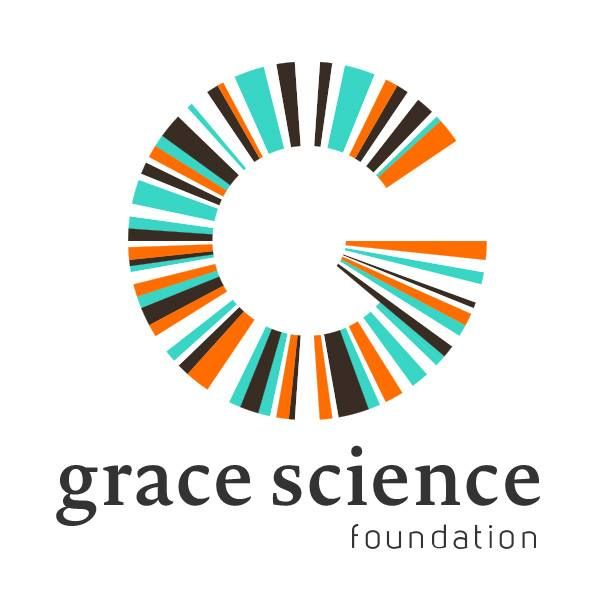Request Demo
Last update 08 May 2025

Grace Science Foundation
Last update 08 May 2025
Overview
Tags
Congenital Disorders
Endocrinology and Metabolic Disease
Other Diseases
AAV based gene therapy
Disease domain score
A glimpse into the focused therapeutic areas
No Data
Technology Platform
Most used technologies in drug development
No Data
Targets
Most frequently developed targets
No Data
| Disease Domain | Count |
|---|---|
| Endocrinology and Metabolic Disease | 1 |
| Top 5 Drug Type | Count |
|---|---|
| AAV based gene therapy | 1 |
| Top 5 Target | Count |
|---|---|
| NGLY1(N-glycanase 1) | 1 |
Related
1
Drugs associated with Grace Science FoundationTarget |
Mechanism NGLY1 modulators [+1] |
Active Org. |
Originator Org. |
Active Indication |
Inactive Indication- |
Drug Highest PhasePhase 1/2 |
First Approval Ctry. / Loc.- |
First Approval Date- |
2
Clinical Trials associated with Grace Science FoundationNCT06122766
Investigation of NGLY1 Deficiency Movement Disorder & Clinical Features
N-glycanase 1 (NGLY1) Deficiency (OMIM #615273) is an ultra-rare, autosomal recessive disorder caused by loss of function variants in NGLY1 gene. The multisystemic disorder is characterized by five key features: (1) global developmental delay and/or intellectual disability, (2) a (primarily) hyperkinetic movement disorder (3) transient elevation of liver transaminases (4) (hypo)- alacrima and (5) peripheral neuropathy. The condition was first reported in 2012 and thus comprehensive characterization of the disease, especially its unique movement disorder, continues to be described.
The hyperkinetic movement disorder in NGLY1 Deficiency is highly complex and has been qualitatively described to include choreiform, athetoid, dystonic, myoclonic, action tremor, and dysmetric movements. These descriptors apply to both lower and upper limb movement in individuals with NGLY1 Deficiency.
Preliminary results indicate that NGLY1 Deficiency is associated with a myriad of movement control problems and range from being unable to perform certain arm movements or walk to behaviors that appear quite similar to age-matched neurotypical individuals. Preliminary results suggest that when reaching for objects, arm motion patterns tend to display unusual joint and hand trajectories, relative to neurotypical individuals, thereby decreasing their effectiveness/efficiency. During gait, range of joint motion, particularly at the knee, was often significantly reduced combined with evidence of leg movement asymmetry. Additionally, preliminary results indicate that there is low frequency tremor, particularly in the upper limbs, that tends to decline during arm acceleration. These preliminary findings, if confirmed in a larger sample, provide entryways to the understanding of how NGLY1 Deficiency impacts movement control and thereby may serve both as diagnostic and therapeutic endpoints for physicians and therapists.
The purpose of this natural history study in NGLY1 Deficiency is to collect longitudinal measurements of movement concurrently with clinical and biomarker measures to aid in the development in end points for future therapeutic trials.
The hyperkinetic movement disorder in NGLY1 Deficiency is highly complex and has been qualitatively described to include choreiform, athetoid, dystonic, myoclonic, action tremor, and dysmetric movements. These descriptors apply to both lower and upper limb movement in individuals with NGLY1 Deficiency.
Preliminary results indicate that NGLY1 Deficiency is associated with a myriad of movement control problems and range from being unable to perform certain arm movements or walk to behaviors that appear quite similar to age-matched neurotypical individuals. Preliminary results suggest that when reaching for objects, arm motion patterns tend to display unusual joint and hand trajectories, relative to neurotypical individuals, thereby decreasing their effectiveness/efficiency. During gait, range of joint motion, particularly at the knee, was often significantly reduced combined with evidence of leg movement asymmetry. Additionally, preliminary results indicate that there is low frequency tremor, particularly in the upper limbs, that tends to decline during arm acceleration. These preliminary findings, if confirmed in a larger sample, provide entryways to the understanding of how NGLY1 Deficiency impacts movement control and thereby may serve both as diagnostic and therapeutic endpoints for physicians and therapists.
The purpose of this natural history study in NGLY1 Deficiency is to collect longitudinal measurements of movement concurrently with clinical and biomarker measures to aid in the development in end points for future therapeutic trials.
Start Date27 Feb 2023 |
Sponsor / Collaborator |
NCT03834987
NGLY1 Deficiency: A Prospective Natural History Study
NGLY1 deficiency is a rare genetic disorder that is characterized by: global developmental delay and/or intellectual disability, hypo- or alacrima, transient elevation of transaminases, and a hyperkinetic movement disorder. Significant phenotypic variability has been observed in the small number of affected individuals described in the medical literature.
The purpose of this study is to describe the natural history of NGLY1 deficiency in a prospective, detailed, and highly uniform manner. Study participants will be closely monitored over the course of five years in order to:
understand the clinical spectrum and progression of NGLY1 deficiency using standardized clinical and neurodevelopmental assessments
identify clinical and biomarker endpoints for use in therapeutic trials, and
identify genotype-phenotype correlations
Close clinical follow-up will allow for generation of a rich dataset and detailed understanding of the natural history of NGLY1 deficiency.
The purpose of this study is to describe the natural history of NGLY1 deficiency in a prospective, detailed, and highly uniform manner. Study participants will be closely monitored over the course of five years in order to:
understand the clinical spectrum and progression of NGLY1 deficiency using standardized clinical and neurodevelopmental assessments
identify clinical and biomarker endpoints for use in therapeutic trials, and
identify genotype-phenotype correlations
Close clinical follow-up will allow for generation of a rich dataset and detailed understanding of the natural history of NGLY1 deficiency.
Start Date01 Feb 2019 |
Sponsor / Collaborator  Stanford University Stanford University [+1] |
100 Clinical Results associated with Grace Science Foundation
Login to view more data
0 Patents (Medical) associated with Grace Science Foundation
Login to view more data
4
Literatures (Medical) associated with Grace Science Foundation01 Dec 2023·Cell Reports
NGLY1 mutations cause protein aggregation in human neurons
Article
Author: Manole, Andreea ; Chen, Songjie ; Williams, April ; Jones, Jeffrey R ; Andrade, Leo ; Tsimring, Katya ; Stern, Shani ; Hoffman, Rene ; Chin, Shao-Ming ; Marchetto, Maria C ; Wong, Thomas ; Manor, Uri ; Schafer, Simon T ; Wang, Guangwen ; Gage, Fred H ; Kaushik, Susmita ; Newmeyer, Traci Fang ; Snyder, Michael ; Paucar, Andres ; Lee, Kevin ; Novak, Sammy ; Rhee, Amanda ; Rosh, Idan ; Cuervo, Ana Maria
05 Sep 2023·Human Molecular Genetics
NGLY1 deficiency: a prospective natural history study
Article
Author: Klotz, Jenna ; Mueller, William F ; Tong, Sandra ; Dwight, Selina S ; Frater, Christina H ; Wilsey, Matt ; Phillips, Jennifer M ; Beahm, Brendan J ; Lee, Kevin J ; Ventola, Pamela ; Muppidi, Srikanth
21 Feb 2022·The Journal of BiochemistryQ4 · BIOLOGY
Patient-derived gene and protein expression signatures of NGLY1 deficiency
Q4 · BIOLOGY
Article
Author: Sun, Han ; Snyder, Michael ; Ghidelli-Disse, Sonja ; Wang, Guangwen ; Rauscher, Benedikt ; Mueller, William F ; Boesche, Markus ; Benes, Vladimir ; Pflaumer, Hannah ; Chen, Songjie ; Islam, M Saiful ; Collier, Paul ; Drewes, Gerard ; Hoffman, Rene ; Haase, Bettina ; Clauder-Münster, Sandra ; Bantscheff, Marcus ; Steinmetz, Lars M ; Jakob, Petra
2
News (Medical) associated with Grace Science Foundation22 Jun 2021
June 22, 2021 13:00 UTC
MENLO PARK, Calif.--(BUSINESS WIRE)--Grace Science, LLC, announced today that the U.S. Food and Drug Administration (FDA) has granted orphan drug designation to GS-100, an investigational AAV9 gene replacement therapy for the treatment of NGLY1 deficiency.
The FDA grants orphan drug designation to investigational medicines and biologics intended for the safe and effective treatment, diagnosis, or prevention of rare disease or conditions affecting fewer than 200,000 people in the United States.
Orphan drug designation provides certain benefits and incentives to Grace Science for developing a gene therapy for NGLY1 deficiency, including seven years of U.S. marketing exclusivity if regulatory approval is ultimately received for the designated indication, potential tax credits for certain clinical research costs, eligibility for orphan drug grants, and a waiver of the Prescription Drug User Fee Act (PDUFA) filing fees.
NGLY1 deficiency is an ultra-rare genetic disease caused by loss of function mutations in the NGLY1 gene. The disease primarily affects children and manifests as a complex neurological syndrome that includes global developmental delay, cognitive impairment, movement disorders, abnormal tear production (alacrima), as well as other neurological symptoms. There is currently no approved therapy for NGLY1 deficiency.
Matt Wilsey, founder and CEO of Grace Science stated: “We are pleased the FDA has granted orphan drug designation to our gene therapy program for NGLY1 deficiency. This action highlights the significant need that exists for the development of safe and effective treatments for children suffering from this condition, including my own daughter, Grace. Our recent interactions with the FDA have been highly productive and we are making rapid progress on our plans to investigational new drug application (IND) in the third quarter of Q3 2022, which would allow us to initiate our first clinical trial by the end of next year.”
Grace Science recently closed its Series A financing, which will fund the advancement of GS-100 into a first-in-human clinical trial for NGLY1 deficiency. The viral vector development and clinical manufacturing services for GS-100 will be provided by Thermo Fisher Scientific at its site in Alachua, FL.
About Grace Science
Grace Science, LLC is a biotechnology company founded in 2017 to develop novel therapies based on the function of NGLY1, a key enzyme involved in proteostasis. The company’s deep knowledge of the NGLY1 pathway is key to its ability to identify new ways of treating NGLY1 deficiency as well as more common diseases. For more information about Grace Science, LLC and NGLY1 deficiency, please visit gracescience.com.
Gene TherapyOrphan Drug
29 Aug 2018
SAN FRANCISCO, /PRNewswire/ -- Today the Grace Science Foundation ("GSF") announced the creation of the world's first and only NGLY1 Deficiency registry, which provides invaluable resources to the medical community racing to find a cure for this rare genetic disorder. So far, the registry contains a treasure trove of data on 36 patients' genomes, symptoms, medical and treatment history, furthering the collaborative efforts GSF founders Kristen and Matt Wilsey have put at the forefront of GSF's initiatives.
"The registry enables clinicians to identify successful interventions in other patients and provides data to researchers looking for clues to support new hypotheses," noted Kristen Wilsey. "This will help accelerate the development of therapies for NGLY1 patients who experience debilitating symptoms."
NGLY1 Deficiency is a genetic disorder that affects many body systems, causing seizures, delayed development, movement abnormalities, liver dysfunction, eye abnormalities, and a reduction or absence of tears. The disorder is rare, with only 49 known living patients, making collaboration amongst researchers in varying parts of the world critical in order to hasten progress toward a treatment. The NGLY1 Deficiency registry streamlines data so researchers everywhere can make informed decisions based on real-time feedback and information. "Knowing patient history, disease progression, and current health status is essential," says Dr. Carolyn Bertozzi at Stanford University. "We have used the registry several times and it's been incredibly valuable. Without question the data have accelerated our understanding and will help the team develop therapies that are more effective."
This groundbreaking platform is part of GSF's pioneering approach modeled after the Silicon Valley startup model, explained Matt Wilsey, "In the face of limited funds and a short timeline, we're bringing together top talent and dropping them in a fast-paced, collaborative environment that is highly iterative."
The Grace Science Foundation is a not-for-profit organization, whose mission is to cure NGLY1 Deficiency by pioneering approaches to scientific discovery that are faster, less expensive and more collaborative. For more information, visit the Grace Science Foundation registry page.
100 Deals associated with Grace Science Foundation
Login to view more data
100 Translational Medicine associated with Grace Science Foundation
Login to view more data
Corporation Tree
Boost your research with our corporation tree data.
login
or

Pipeline
Pipeline Snapshot as of 14 Feb 2026
The statistics for drugs in the Pipeline is the current organization and its subsidiaries are counted as organizations,Early Phase 1 is incorporated into Phase 1, Phase 1/2 is incorporated into phase 2, and phase 2/3 is incorporated into phase 3
Preclinical
1
Login to view more data
Current Projects
| Drug(Targets) | Indications | Global Highest Phase |
|---|---|---|
GS-100 ( NGLY1 ) | Genetic Diseases, Inborn More | Preclinical |
Login to view more data
Deal
Boost your decision using our deal data.
login
or

Translational Medicine
Boost your research with our translational medicine data.
login
or

Profit
Explore the financial positions of over 360K organizations with Synapse.
login
or

Grant & Funding(NIH)
Access more than 2 million grant and funding information to elevate your research journey.
login
or

Investment
Gain insights on the latest company investments from start-ups to established corporations.
login
or

Financing
Unearth financing trends to validate and advance investment opportunities.
login
or

AI Agents Built for Biopharma Breakthroughs
Accelerate discovery. Empower decisions. Transform outcomes.
Get started for free today!
Accelerate Strategic R&D decision making with Synapse, PatSnap’s AI-powered Connected Innovation Intelligence Platform Built for Life Sciences Professionals.
Start your data trial now!
Synapse data is also accessible to external entities via APIs or data packages. Empower better decisions with the latest in pharmaceutical intelligence.
Bio
Bio Sequences Search & Analysis
Sign up for free
Chemical
Chemical Structures Search & Analysis
Sign up for free

